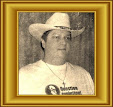The thought experiment
concept has been around for a very long time, even before mathematics
became a formal discipline. Scientists use it for a "what if" approach
to imagine the results of an event or procedure. Here, we start with an
apocalyptic event.
In
a sudden global catastrophe, our nice planet gets wrecked. (In my
version, atheists tried to destroy all creation science materials
through special bombs, but they backfired and destroyed all science and many other things.) Yep, something terrible happened. We have to commence rebuilding, but we don't have science to work with.
So we have to rebuild science as well.
The Shivas were not able to destroy our Bibles, much to their chagrin. But the Bible contains what we need to make a new beginning. We can learn theology, logic, that the nature of the universe is predictable, and more. Atheists and other anti-creationists can help, but we cannot use their views for our foundations because science is impossible without God.
What follows is a set of three articles presenting the thought experiment and working through it.
 |
| Credit: Pixabay / Pete Linforth |
So we have to rebuild science as well.
The Shivas were not able to destroy our Bibles, much to their chagrin. But the Bible contains what we need to make a new beginning. We can learn theology, logic, that the nature of the universe is predictable, and more. Atheists and other anti-creationists can help, but we cannot use their views for our foundations because science is impossible without God.
What follows is a set of three articles presenting the thought experiment and working through it.
Imagine that humanity has emerged from the rubble of a nuclear holocaust. All the science textbooks are gone. Years have passed and many things have been forgotten. In many cases, we don’t know what’s true and what isn’t. Is the earth round or flat? Does the earth go around the sun, or is it the other way around? We don’t have access to any of the sources we would normally turn to with questions like this, and if we want to find out, we have to build the tools to do so from scratch. But as you stagger forward from the ruins of civilization, you’re not completely bereft of everything, because you’re still holding a Bible, and your thinking is shaped on a fundamental level by the culture that arose from it.To read the rest, click on "Dystopian science Part 1: Why the Bible enables science to work". Don't forget to come back for next two parts.
We know that the Bible can give rise to science in our dystopian scenario, because it has already given rise to science in the real world. From history, we know the founders of most of the branches of modern science were Christians. They were doing science because they believed they were, in the words of the great astronomer Johannes Kepler, “thinking God’s thoughts after Him.” They were using these very assumptions, and these assumptions are what underpins the entire field we call “science”. We can now go out and perform experiments, and then extrapolate those results logically (since logic is based in the Person and Word of God) to come up with conclusions about how the world works. So it is not illogical to suggest that in a dystopian scenario, the Bible would again give rise to science, as long as there were still people around who wanted to “think God’s thoughts after Him.”You can read all of this installment by clicking on "Dystopian science Part 2: Conspiracy theories require a magical world". We have one more after you get back.
. . .
Science advances as older, sometimes flawed ideas are challenged and replaced with better ideas. And the Bible allows for this, because, while it is not a science textbook, it gives us a framework and a mandate for science. It also gives us a way of thinking that should enable us to more and more closely approach the truth, or at least to disprove false ideas.
God is a God of order (c.f. 1 Corinthians 14:33), and we can easily see this in Scripture. For example, He made the sun, moon, and stars “for signs and for seasons, and for days and years” (Genesis 1:14)—that assumes knowledge of astronomy, physics, mathematics, a concept of linear time, a calendar system, rationality, and the ability to make empirical observations—all in one verse! Thoughts like this help us to understand that there is a normative order in nature and provides the basis for a pragmatic, practical use of science.To read the final article in its entirety, click on "Dystopian science Part 3: Rebuilding science from the ground up".
Our thought experiment has turned out unexpectedly optimistic! God has given us all the foundation we need in Scripture to do science and to test the claims of others who claim to be authorities. So where do we start?
